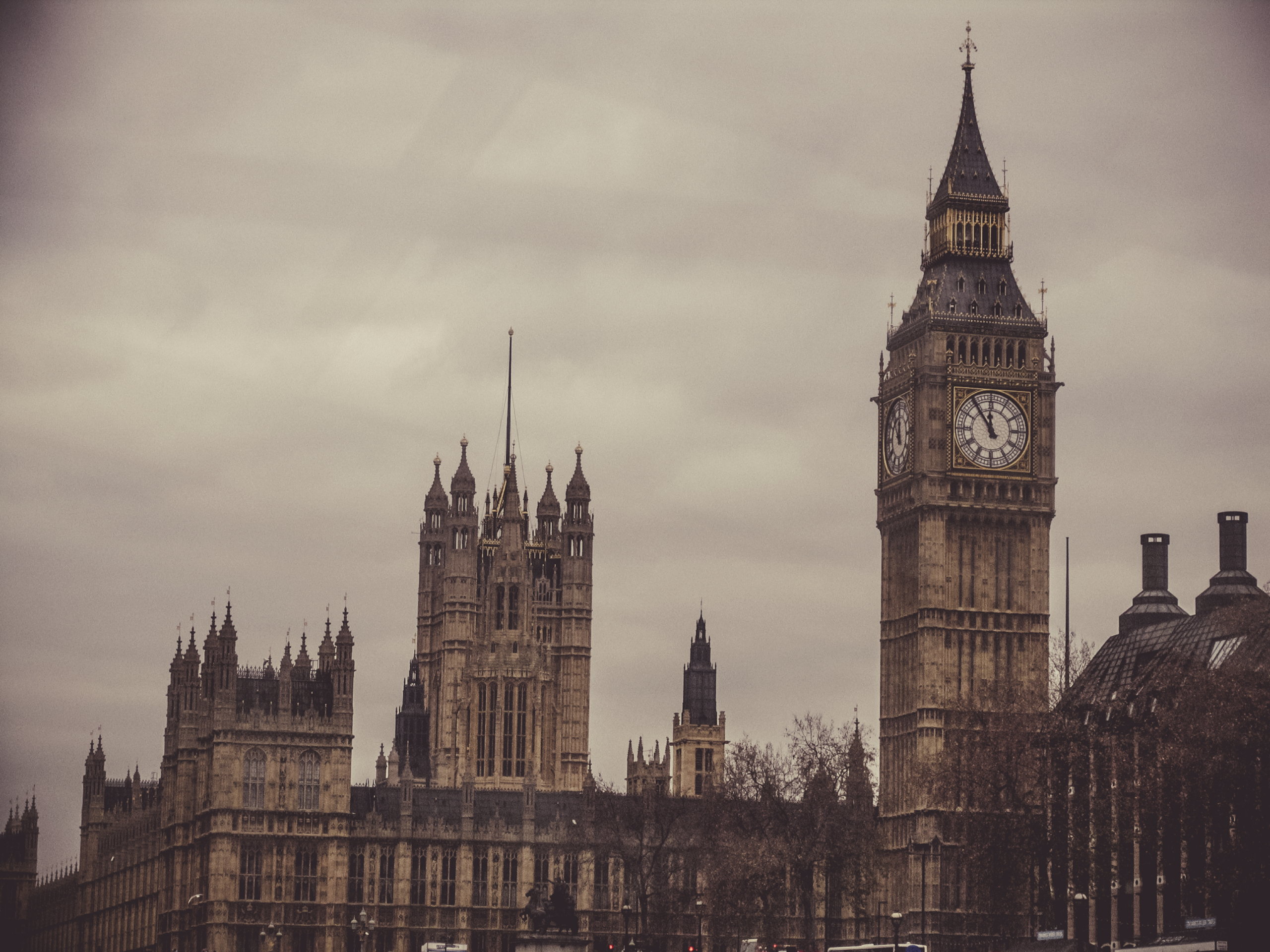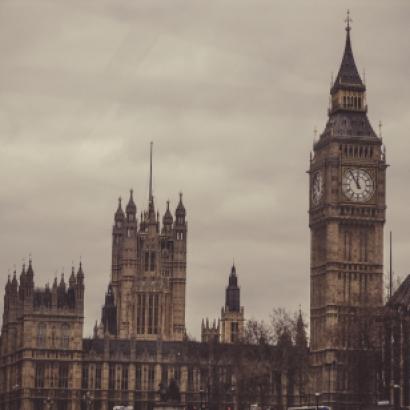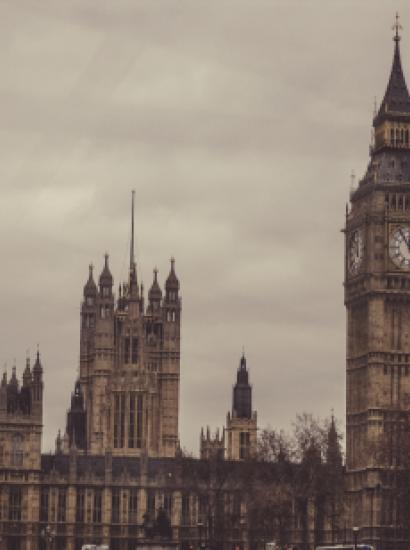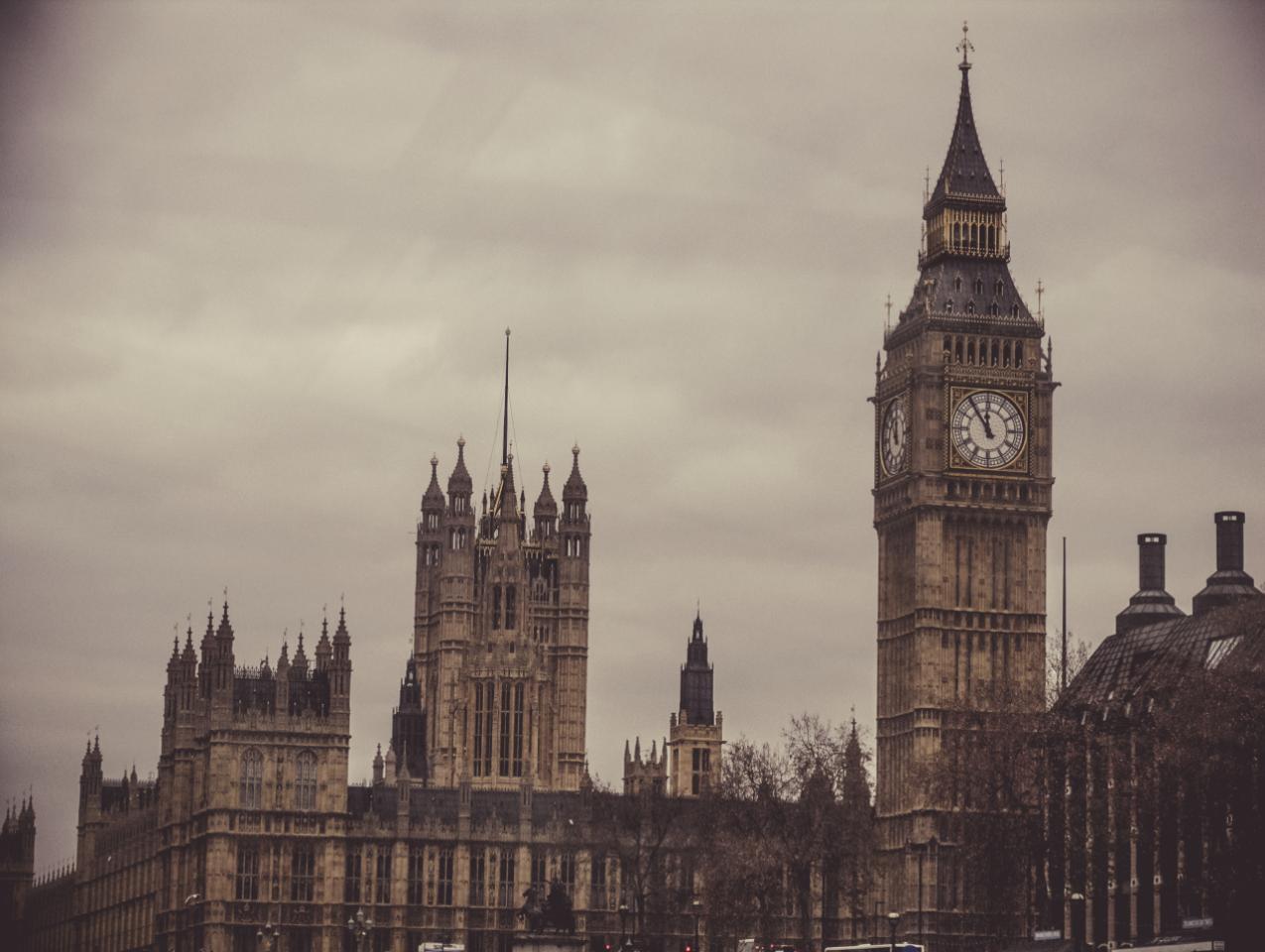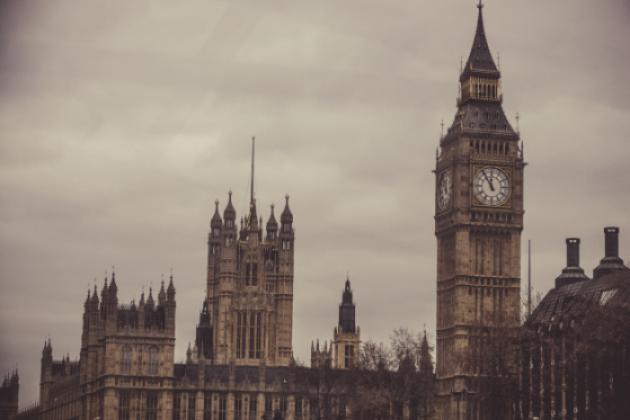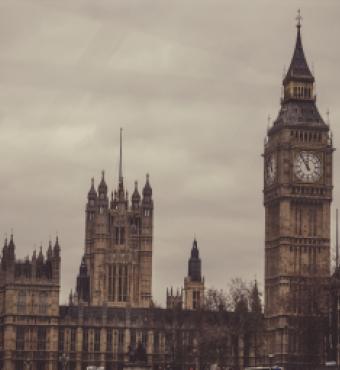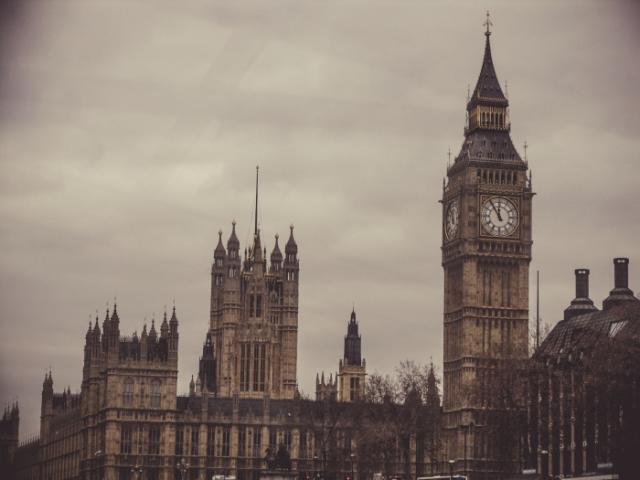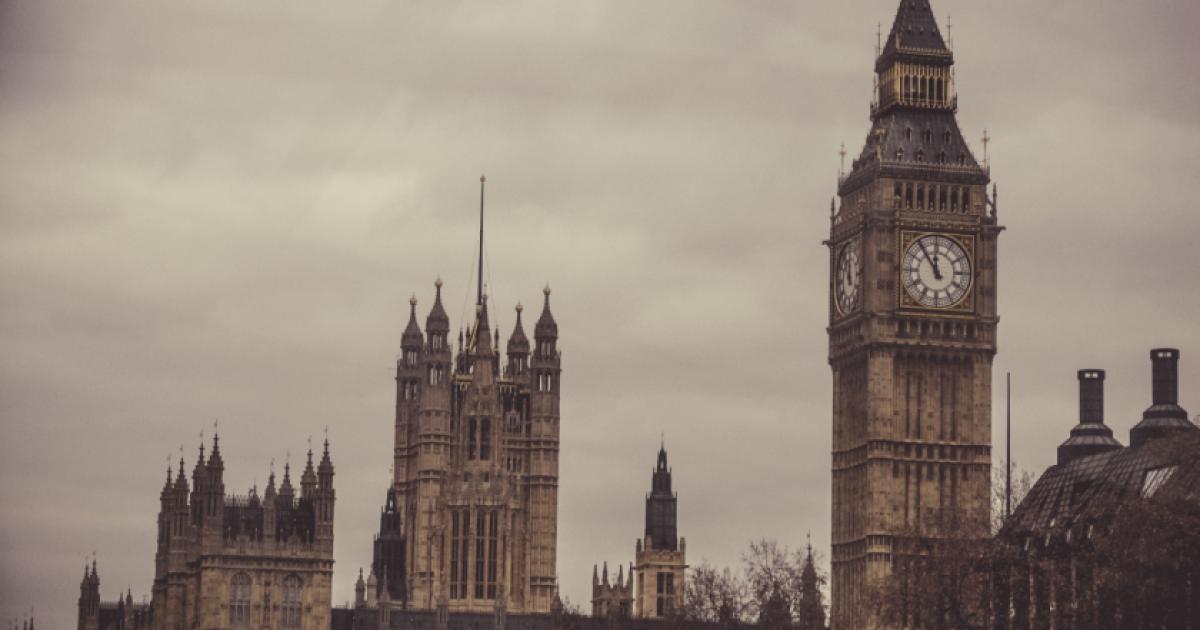
- Europe
- Politics, Institutions, and Public Opinion
- Answering Challenges to Advanced Economies
This variant of a classic internet meme, using illustrations from the original Sherlock Holmes stories, captures the conventional wisdom about current politics in the UK:

One year after the July 4, 2024, election, which saw Keir Starmer lead the Labour Party to a landslide victory, the media are dogpiling onto a prime minister with low poll ratings, a rebellious party, and a string of policy reversals. Pundits are asking if his leadership days are numbered and are speculating about potential replacements. The podcast cognoscenti are already declaring the populist Reform Party the winner of the next election, and we read predictions that the Conservative Party will either collapse or become irrelevantly small. The media continue their de facto boycott of the Liberal Democrats, the third-largest party in the Commons, while devoting mammoth coverage to parties and proto-parties with a handful of MPs.
While it is easy to get lost in the weeds of daily headlines, we should step back and question the conventional wisdom. While Starmer’s approval ratings have indeed sunk since the election, no leader is very popular. The Reform Party may be leading some vote intention surveys, but all parties have net negative ratings, and the next parliamentary election is unlikely to occur until 2029. While the Labour government is struggling with fiscal challenges, no party has an innovative plan or is making credible promises. By some accounts, Starmer and Labour have “a surprising amount to celebrate” after a year in office. And counting out the Tories, the world’s oldest and most successful political party, shows how the British media and pundit classes live in a poll-obsessed world with little understanding of history.
We also need to make sense of the past decade’s kaleidoscope of policy controversies, electoral reversals, shifting polls, and changing leadership. The stakes are high, as despite all the criticism of Starmer, no recent leader has governed successfully, and a growing chorus claims the UK is becoming a failed state. Rather than seeing contemporary politics as determined by inadequate leaders (take your pick) or bad luck (the pandemic), we might consider the possibility that something more fundamental has gone wrong.
The nightmare scenario for Britain is that nobody knows what to do about its fiscal problems, and the nation therefore lurches from leader to leader, from party to party, and from promise to promise. One can imagine a future in which taxes grow, the debt mushrooms, and services atrophy, but politicians take the low road of banging on about culture wars, Europe, and immigration.
The budget squeeze
While the turbulence of the recent year is often attributed to Starmer’s personality or the Labour Party “not having a plan” for governing, a more worrying explanation is that the nation’s problems have no easy answers. As comforting as it is to believe that Britain just needs a slightly tweaked Keir Starmer, the everyday narrative that “nothing works” and “everything is broken” suggests otherwise.
From social welfare to police to health care, every government program and organization appears to need an immediate cash infusion to avoid slow-motion failure or even collapse. While warnings have been sounded about individual policies for some time, the totality of the problem has been difficult to see. Westminster has been distracted by the many shocks and disruptions of the new century, including the financial crisis, terrorism, forever wars, Brexit, the pandemic, the Russian invasion of Ukraine, and now Trump 2.0.
Exacerbating the government’s fiscal problems is the weakness of the economy, including its slow recovery from the financial crisis, sluggish productivity, the disruptive effects of Brexit, the regulatory environment, and millions of “economically inactive” people.
In addition, the government is under pressure by both Donald Trump and Vladimir Putin to spend more on defense, which may prove to be both expensive and “too little, too late.”
Labour’s dilemmas
As a center-left party, why does Labour not just raise taxes and increase debt?
One reason is that the ghost of the Liz Truss “mini-budget” haunts Westminster. If the Tories demonstrated anything while in office, it was the power of the bond markets. To avoid spooking them, which would increase the cost of government borrowing, among other effects, the Labour Treasury implemented a set of “fiscal rules,” which include a requirement that day-to-day expenditures not be funded by debt (although “investments” are exempted). The government describes these rules as “non-negotiable,” but they are not easy to follow given the many pressures on the budget.
In addition, Labour promised during the 2024 campaign not to raise taxes on the three main sources of revenue: income tax, VAT, and national insurance. While many now claim this was a bad idea, to go back on the promise would challenge the credibility of a government that has already reversed plans to cut the winter fuel payment and disability support. While Chancellor Rachel Reeves did announce multiple new tax increases in October, she kept the party’s promise not to include the main three.
Many Labour MPs nevertheless want greater expenditures on social welfare programs. They are dismayed by a political-economic context that may require domestic cuts, especially after the party spent years criticizing the Tory “austerity” measures after the Great Recession. While they were happy to see Starmer increase funding for the NHS—a Cookie Monster with an endless appetite for taxpayer funds—they are upset this may come at the expense of other programs. Many Labour Party parliamentarians also want to add billions to the budget by eliminating the “two-child cap,” which limits welfare support to two children per family. Starmer recently suspended four more MPs from the parliamentary Labour Party—and not because they pushed for budget cuts.
This suggests that while Starmer and Reeves want to live in some version of the fiscal real world, a critical mass of the Labour Party does not. But are the other parties any better?
Kemi Badenoch, the Tory leader, recently gave a welfare reform speech, but it is not easy for the party to demand changes that it somehow avoided during fourteen years in power. MPs from the Tories, Liberal Democrats, Greens, Scottish National Party, and Reform Party opposed Starmer’s welfare and winter fuel allowance reform plans. Reform also announced its opposition to the two-child cap for “British families,” which reflects the tendency of populist parties to support social welfare programs for non-immigrants.
Furthermore, will any party call for revising the “triple lock,” which has increased the cost of the state pension three times more than initially predicted? The Office for Budget Responsibility (OBR) recently forecast that government debt would grow to 270 percent of GDP in fifty years, up from almost 100 percent today, and the pension is a key culprit.
No way out?
As the above suggests, the central tension in British politics, which underlies its many specific problems, is that the sum total of government is unaffordable and unsustainable, and nobody knows what to do about it.
It is now a cliché to say that Britain can only grow its way out of this problem, but what does that mean in practice? When we encounter reform ideas, they have the aura of inevitable failure. Whether from the left, center, or right, seemingly everyone wants Westminster to not only make all the important decisions but also to increase state power along some key dimension of the economy. Whether taxing and spending, regulation, or labor markets—three key policy legs of the economic stool—nobody appears to want a pro-growth policy that consistently reduces the government’s economic footprint.
At the moment, however, Britain is not experiencing the level of crisis necessary for new thinking. To the contrary, many now argue that the most responsible and realistic approach to budget problems is to raise taxes, but this can provide only a type of short-term relief.
In addition to lowering taxes and controlling spending, a crucial part of any pro-growth agenda is deregulating labor markets, which must include fewer government restrictions on immigration. This would be controversial, however, given the anti-immigration turn in British politics. Immigrants are routinely and unfairly blamed for all manner of real and alleged economic, fiscal, and cultural problems. Legal and illegal immigration are increasingly conflated. Even Starmer feels compelled to use “open borders” rhetoric and language reminiscent of Enoch Powell’s “Rivers of Blood” speech.
Nevertheless, the nation clearly needs more working-age people in light of population aging, reduced workforce participation, declining entrepreneurship, and military recruitment difficulties. Who will build the million and a half homes promised by Starmer? Who will staff the NHS? Who will care for an aging population? Who will join the army? While many in politics believe clever policies can move more native-born people into work, this will likely fail, as do most government efforts to artificially reshape labor markets.
Despite all the controversy about the so-called “Boriswave” of immigration, Britain does need more workers. Whether the proper policy is a points system or American-style employer sponsorship is open for debate, but Johnson was only fulfilling the Brexit promise: to adjust migration flows to match the needs of the nation.
A pro-immigration politics? Impossible, cry the critics! But to adapt the G. K. Chesterton saying about Christianity, one could argue that it “has not been tried and found wanting; it has been found difficult and left untried.”
While we should not hold our breaths for a more rational approach to immigration, or to the power of government more generally, the situation calls to mind the classic definition of insanity: “doing the same thing over and over again and expecting different results.” If and when Britain realizes that the same old approaches are failing to break the economy out of its lethargy, it may consider bringing the spirit of deregulation and smaller government to economic policy across the board.
Are the Conservatives dead?
This is the hot take of the media and pundit classes, who are obsessed with polls and oddly forgetful that Britain is unlikely to have a parliamentary election until 2029. By the tone of the coverage, you would think the next election was in four weeks, not four years.
The media nevertheless report poll after poll indicating that “if the election were held today” the Reform Party would win a plurality of seats, with the Tories dropping to third or even fourth place. But that “today” will not likely come until 2029, and who knows what the world will be like then?
In addition, these poll numbers are at least partly, and maybe largely, a result of the media obsession with Nigel Farage and the Reform Party. The amount of coverage of a party with four members of Parliament is possibly unprecedented in British history. One might wonder how Reform could not have won a handful of Commons seats in 2024, done well in the 2025 local elections, or won a recent by-election.
Even so, its recent strong gains in local elections, which are for offices that face many constraints and strains, may be best understood as protest votes. They are not necessarily indicative of how the electorate would behave in a consequential parliamentary election. Mayoral and local council Reform victories might even constitute opportunities rather than obstacles for the Conservatives and Labour, as voters in future elections may wonder what was accomplished after all the hype.
Current Tory difficulties could also be interpreted as a last chapter of the 2024 election rather than a first chapter of the next election. After fourteen years in power, the Tories had undoubtedly worn out their welcome. The public’s memories of Cameron-May-Johnson-Truss-Sunak will take time to fade. While Kemi Badenoch is receiving much bad press, and the Westminster rumor mill says she may be replaced sooner than later, what mere mortal could have quickly turned around the party’s fortunes?
Lastly, how should the Tories respond to the challenge of Reform? The answer may determine the future of the party; as Lord Andrew Roberts warned, “There is no God-given right for the Conservative Party to thrive or even exist.” Some Conservatives want to become “Reform Lite,” but many observers have noted that claiming your opponent is mostly right is not the best way to win votes. Why buy margarine, voters may think, when they can buy butter? Moving to the populist right could also lead to additional Blue Wall defeats to the Lib Dems, not to mention possible defections.
Rather than joining the global populist parade of fiscal irresponsibility, culture wars, and nativism—not to mention overall boorishness and ungentlemanly behavior—the Tories are best advised to stand up for their classic values, character, and traditions. As an article in the New Statesman pondered about the Henley and Thame constituency, currently represented by a Lib Dem, “I wonder if the contemporary Tories put down the migrant crime statistics and swapped them for a pair of deck shoes, their friends in Henley may come back to their side.”
Geoffrey Wheatcroft, author of The Strange Death of Tory England, recently noted that the Conservatives “may look as if they are finished for good, which Kemi Badenoch tells us will mean the end of Western civilisation. But history suggests that it would be a mistake to write them off.”
Whether the Tories write themselves off is the question that may shape the future of Britain.







